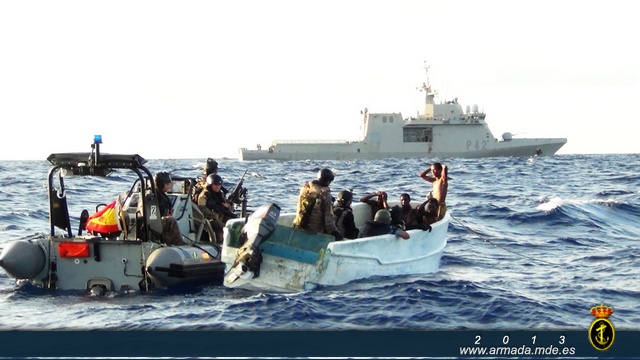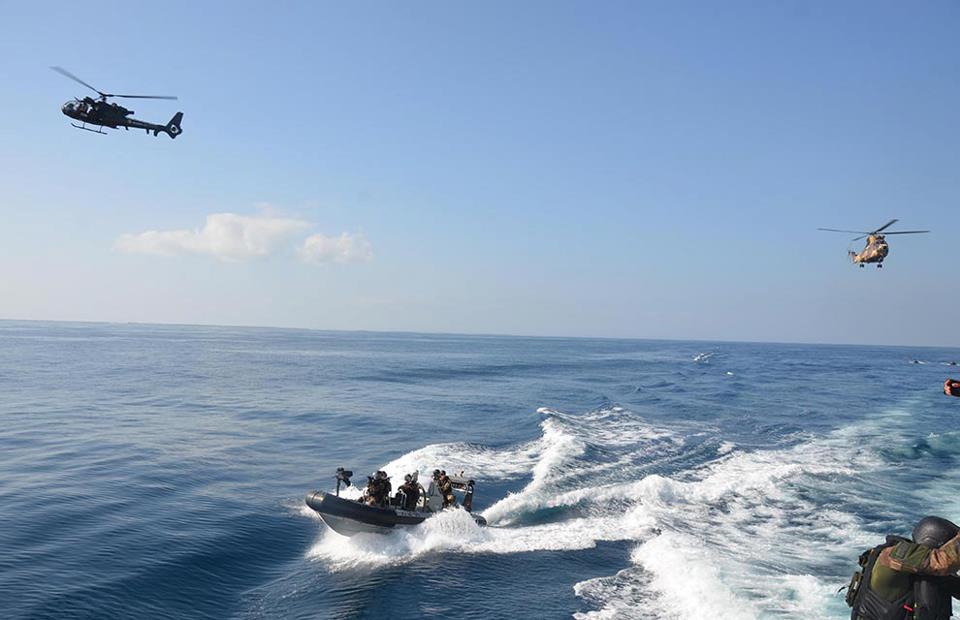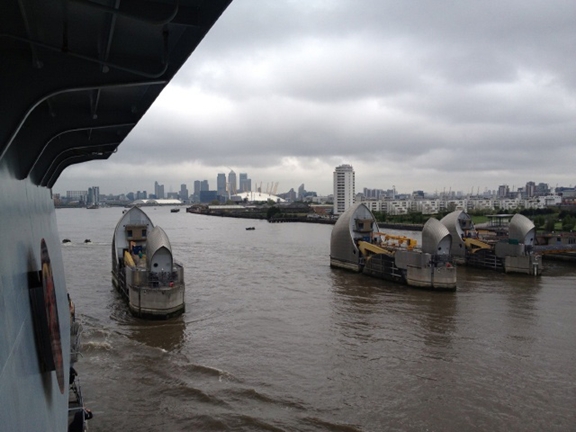Six “suspects” apprehended in the Indian Ocean

(BRUSSELS2) The Spanish ship, Thunderbolt, which is taking part in the EUNAVFOR Atalanta operation, released on Friday (9 May) six Somali men who cannot really be said to be pirates but who cannot be said to be simple fishermen.
It's the Spanish tuna boat Txori Toki, who operated in the region, who had given the alert a few days earlier. He had spotted the craft nearby, about 4 miles from where he was.
The alert given through COVAM, the operational center for surveillance and action of the Spanish Navy, was transmitted to the EU anti-piracy HQ and to the Thunderbolt, which was at that time 150 miles away. The 'suspect' skiff was located and boarded by the Spanish vessel's survey team on Tuesday (6 May) 250 nautical miles east of Mogadishu. The skiff was drifting, its engines damaged.
The inspection carried out by the Spanish military did not reveal any clear evidence of piracy. However, certain signs suggested that it was not just fishermen. The boat did not have any traditional fisherman's equipment. On the other hand, it had two powerful outboard motors, GPS and several mobile phones without maps. Given the bad sea conditions, the lack of food, the "sailors" were embarked on the ship and "held" on board, before being redeposited on dry land in Somalia. No specific fact allowing them to be brought to justice, this method nevertheless makes it possible to neutralize any desire for action.


